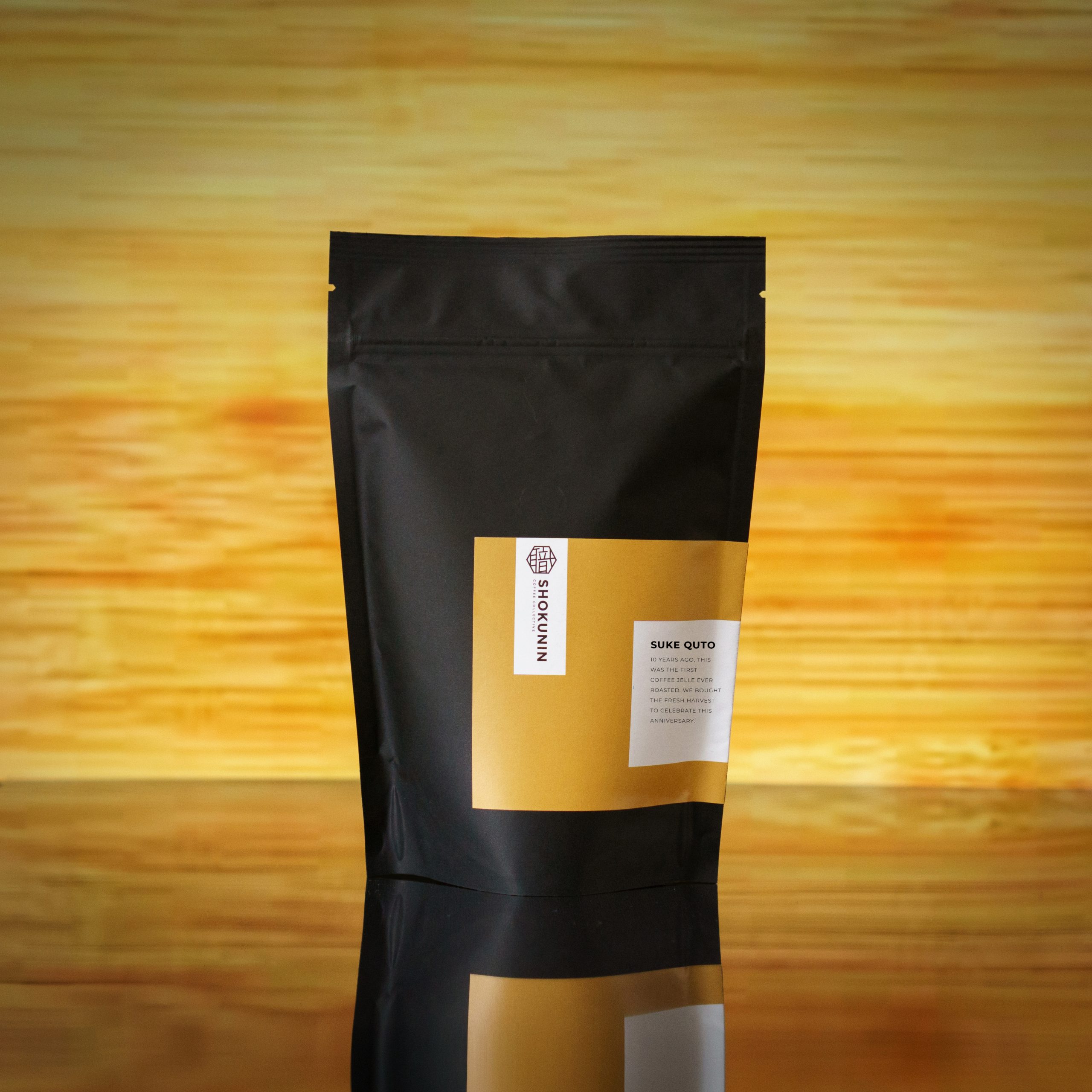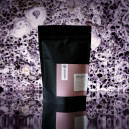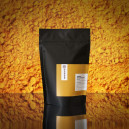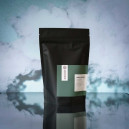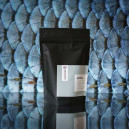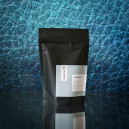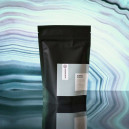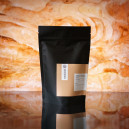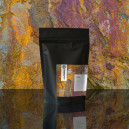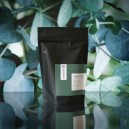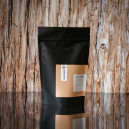Suke Quto
10 years ago, this was the first coffee Jelle ever roasted. We bought the fresh harvest to celebrate this anniversary.
Region: Guji, Ethiopia
Variety: Heirloom
Processing: fully washed
Additional information
| Weight | N/A |
|---|
Jelle's Notes
I wanted to add another Ethiopian coffee to our line-up, and my mind went straight to Trabocca. They’ve been working with Suke Quto for over 15 years, and it’s one of those coffees you can order blind and know it will be good. Year after year, it delivers.
At its peak, Suke Quto was everywhere. It was even the first coffee I ever roasted. So many roasters had it that, over time, people started looking for other Ethiopian coffees to stand out. With so many options and no risk of overlap, Suke Quto slowly slipped into the background. It became a bit of a forgotten child, although you’ll still see it pop up now and then, sometimes even under the name Tesfaye, after the farmer who made it what it is.
Bringing it back to Shokunin felt right. It fits nicely next to a coffee like Keramo Washed. Where Keramo leans sweeter and more caramel-like, Suke Quto is cleaner and more tea-like. It shines in black brews, especially filter or pure espresso, where its clarity and balance really come through. But, of course, it tastes good any way you want to drink it!
Producer
This lot comes from Tesfaye Bekele, the founder of Suke Quto Farm and one of the pioneers of Guji coffee. Tesfaye comes from a coffee-producing family and started working with coffee as a kid, then left and eventually returned to Shakisso and found himself back in coffee.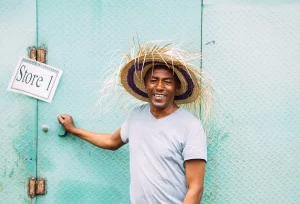
In the late 1990s, Guji was hit by massive bushfires that destroyed over 5000 acres of forest. Tesfaye was working for the Ethiopian government at the time, responsible for the Guji and Borena zone. He was tasked with rebuilding and finding new ways to conserve the land. He proposed replanting the forests and adding coffee trees to increase biodiversity. The community agreed, but when they learned it would take four to five years for the trees to bear fruit, many gave the seedlings back.
Tesfaye set aside a small plot and started a nursery with government funds to prove his idea could work. He eventually resigned from his government job and became a coffee farmer himself. He wanted to make coffee the heart of the region, and he helped put Guji on the specialty coffee map. After his first harvest, the same people who had rejected the idea returned and asked for seedlings. Today, many farms in Guji trace their roots back to Suke Quto.
Tesfaye works with 171 outgrowers and manages 220 hectares of land in the highlands of Odo Shakisso. The farm stretches across highlands and valleys, with volcanic soil kept fertile through organic recycling from coffee and shade trees. All Suke Quto coffees are Organic and Rainforest Alliance certified.
More than 200 seasonal workers help pick and process the coffee. Tesfaye focuses on environmentally friendly coffee and economic growth for the community. He believes people should earn a living income from sustainable coffee production. In cooperation with Trabocca, they helped build a new school in the nearby village of Kurume. It is even possible to fully trace the beans back to the farmers: https://trace.fairfood.org/consumer-interface/#/web/trabocca
Pricing
Price Breakdown (/kg)
For us, sourcing coffee isn’t just about finding the right flavour, but more about finding the right people. We want to work with importers who are interested in building lasting relationships with the farmers and stay involved beyond the harvest. For this coffee, we’ve partnered with Trabocca. They work directly with producers, support long‑term development at origin, and structure pricing to reflect the real work behind each lot. Their model is built on transparency, quality support, and a commitment to move beyond commodity‑driven pricing. We pay more, but we know why. That’s how we prefer to source our coffee.
€10.76/kg
This total includes the FOB price at origin and the costs required to move the coffee from FOB to FCA.
How is this built up?
$3.84/lb
€8.46/kg
$0.25/lb
€0.55/kg
Story of Guji Coffee

